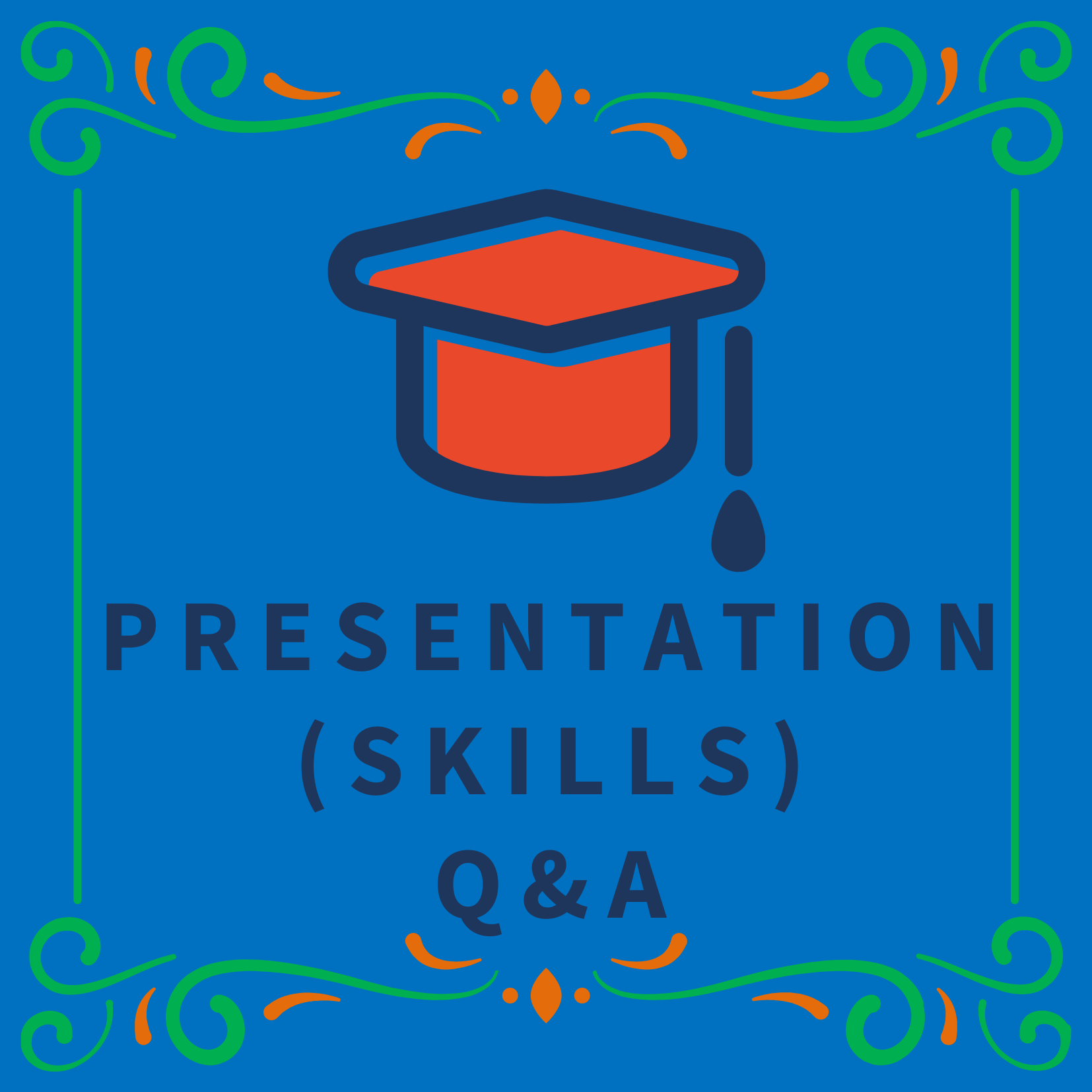Episode 5
Look! No hands!
What do you do with your hands and arms when you are standing in front of your audience?
Have you penguin and T-rex arms? Sometimes it's difficult to know what to do.
Carina and Martin discuss and give tips and pieces of advice.
Send us questions to: info AT pik DOT nu, or contact us via Carina's site or Martin's Bio.Link page. You could also contact us on LinkedIn (Carina Ridenius and Martin Lindeskog).
Show notes with links to articles, blog posts, products and services:
- Indian summer
- Nonverbal communication
- Pen Meets Paper podcast
- What to Do With Your Hands in Social Situations (& What NOT to Do) - Science of People DOT com
- 60 Hand Gestures You Should Be Using and Their Meaning
- Dr. Laura Sicola - Vocal Impact Productions
- Gesticulation in Italian
- The Fountain Guide to Value for Value - Fountain.fm
- The Feedback Loop - Value4Value.info
The episode (6 minutes) was recorded at 1330 Central European Time, on October 21, 2022, with Ringr app.. Martin did the editing and post-production with the podcast maker, Alitu. The transcript is generated by Alitu.
Transcript
Welcome to Presentation Skills Q and A. I am Martin Lindoscope.
Speaker A:Hi, Karina.
Speaker B:Hi Martin.
Speaker B:How are you today?
Speaker A:I'm doing fine.
Speaker A:Yourself?
Speaker B:Yes, I'm fine.
Speaker B:It's a lovely autumn.
Speaker B:Lovely colors.
Speaker B:Yellow and orange and Indian summer, as.
Speaker A:You say in American English.
Speaker B:Yes, Indian summer.
Speaker B:Absolutely.
Speaker B:Last week or last episode, should I say, we were talking about communication handshake and
Speaker B:we have talked about the eye contact and how much it really means when you meet someone.
Speaker B:What do you think about that? How do you use your arms and hands when you
Speaker B:are talking or describing something? Or something?
Speaker A:That's the challenge.
Speaker A:Also, what it signals out is nonverbal
Speaker A:communication.
Speaker A:We have always if somebody is having their
Speaker A:arms in the cross, so to speak, or over your chest, or if you have your hands in your
Speaker A:pockets, or what do you do with your hands because you are thinking what you are saying.
Speaker A:But the whole body should be relaxed and into this task that you are doing.
Speaker A:That's something that I've thought about.
Speaker A:And the challenge.
Speaker A:Where do you put your hands so it will look natural but also not getting strained or
Speaker A:stressed or not comfortable?
Speaker B:Yeah, that could be difficult because when you're nervous as well, maybe
Speaker B:your hands get sweaty and if you put them on the surface, it gets wet.
Speaker B:And that is so embarrassing.
Speaker B:That's why I think sometimes people take their
Speaker B:hands and hold them tight to their body.
Speaker A:What I think when I have presentation and if you have that possibility,
Speaker A:is to use some kind of props.
Speaker A:So I could have you I'm talking about new
Speaker A:media, social media, smartphones, and then I could hold up an iPhone, for example, or an
Speaker A:iPad, or as I have a podcast together with two others called you One and U one Pen meets
Speaker A:Paper.
Speaker A:Have a pen in your head or writing on a board
Speaker A:or something like that.
Speaker A:So hold something.
Speaker B:Yes. And when you're talking about length, amount, wideness and so on, you can
Speaker B:show that with your hands, so that your body and the topic that you are talking about is
Speaker B:going together.
Speaker B:And that also is very important that when you
Speaker B:move your body, you don't do it.
Speaker B:You just stand not on the right foot, left
Speaker B:foot and side to side you use your arms and hence so they are not stiff.
Speaker B:For example, trex arms.
Speaker A:Yeah, that sounds old school.
Speaker A:Trex, like the dinner's house.
Speaker A:But I could see it in front of me.
Speaker A:I don't see each other as you know.
Speaker A:No, but I have an image now.
Speaker B:Yeah.
Speaker A:There was another name in Van Mal kingdom, penguin arms.
Speaker B:Yeah, I used to call it the Penguin syndrome.
Speaker A:Yeah, penguin syndrome.
Speaker B:And that can happen to you when you are nervous.
Speaker B:For example, then you can get these penguin arms or T rex arms that you don't use them at
Speaker B:all.
Speaker A:Okay, so that's a sharemanship.
Speaker A:And maybe that could be included in the show
Speaker A:notes, examples of it or what to think about and also to reflect about that, because I
Speaker A:think it could be an issue for many people.
Speaker A:What should I do with their hands?
Speaker A:It's like this serious soap, like when Bert was doing with his fingers snapping and say,
Speaker A:I'm gone.
Speaker A:And you could say, like, look here and then
Speaker A:look away.
Speaker A:No hands or gone.
Speaker A:Or like a magic trick or something like that.
Speaker A:But you want to get away with the thing, but
Speaker A:you have because it's a whole body.
Speaker A:So you have to work in it in a good way.
Speaker B:And remember, when you use your hands and arms, it helps you it helps you on
Speaker B:the way what you are saying.
Speaker B:And it helps you you get more vivid when you
Speaker B:use your hands and arms and more relaxed in the situation.
Speaker A:So to joke, maybe we should be more Italian then use for arms.
Speaker B:More Italian?
Speaker A:Yeah. More Italian.
Speaker B:Well, Martin? Five minutes.
Speaker A:It goes so fast, very fast.
Speaker B:And we know, you and I, that many people are talking about communication and we
Speaker B:want questions.
Speaker B:Is it so?
Speaker A:Yes, that's true.
Speaker B:Yeah. And we want the questions sent to us to the email info at pik new info
Speaker B:at pip.
Speaker B:New.
Speaker A:And you could also reach out with your arm and then click on your phone, your
Speaker A:smartphone, and download a new podcast app, for example, Fountain, where you could give us
Speaker A:a positive feedback loop writing with your fingers and digital telegram called Boosted
Speaker A:Gram and send you a token of appreciation.
Speaker A:So that's a call to action event.
Speaker B:Exactly. Well, Martin, thank you for today.
Speaker A:Thank you very much.
Speaker A:Dorina.
Speaker B:Yeah. And we will see each other and hear from each other.
Speaker A:Yes, we will.
Speaker A:Cheerio.
Speaker A:I'm waiting.



